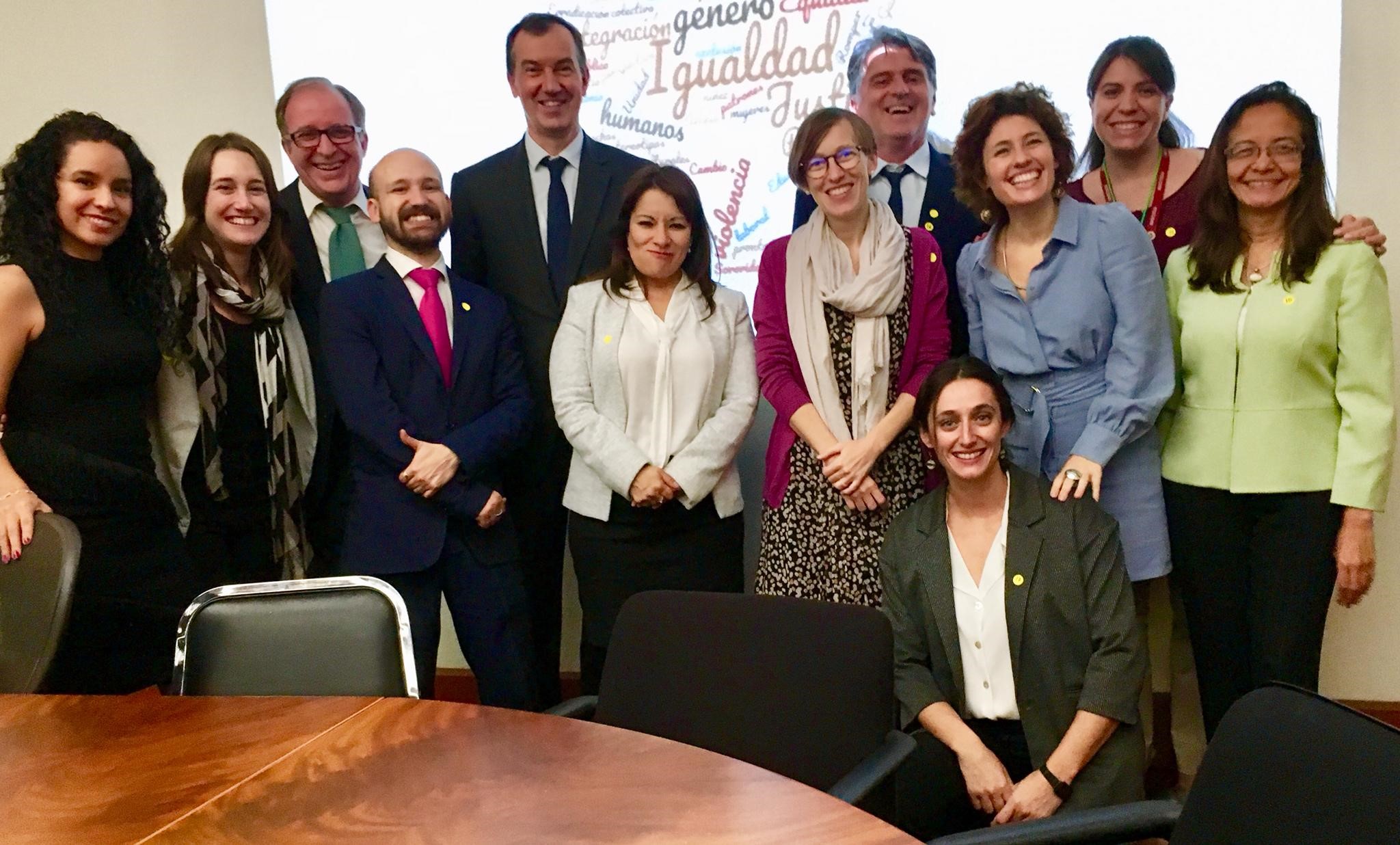On 8 November, the “country round-table event”, a dialogue between Mexican institutions and the EUROsociAL+ programme on the social cohesion agenda, took place at the Ministry of Foreign Affairs of Mexico.

EUROsociAL+ has been working with Mexico since 2017, accompanying six key policies to improve social cohesion and supporting its participation in regional actions. However, after the change of government in 2018 and the approval of the new National Development Plan 2019-2024, it was necessary to reopen a space for dialogue with Mexican institutions. It was about sharing progress, confirming the interest of the new authorities in the ongoing actions, and identifying new opportunities for accompaniment by EUROsociAL+.
For this, the Mexican Agency for International Development Cooperation (AMEXCID), the Delegation of the European Union in Mexico and the EUROsociAL+ programme jointly organised the “round table”, which brought together about 60 participants from about twenty Federal institutions and two states (Oaxaca and San Luis Potosí).
Structured around four priority axes for the policy agenda in Mexico (gender equality; migration; employment and welfare; rights, territories and violence prevention), the round table allowed, in the initial session, a panorama of the challenges of social cohesion to be presented. The interventions from the assistant secretary for social welfare and employment, and of high-level representatives of the Ministry of Social Welfare, the Ministry of the Interior, the National Institute of Women, and the Secretary of Agrarian and Territorial Development, highlighted the progress, but also the challenges, of sectoral policies. These policies include the development of the general welfare law and the national care system with a gender approach, labour inclusion of youth and migrants, the implementation of the comprehensive migration policy, and the new paradigm for violence prevention policy, based on building trust and citizenship.
The working groups enabled a more in-depth look into these challenges to structure a “priority map” of the country in the area of social cohesion. In the coming weeks, the EUROsociAL+ programme will deepen the direct dialogue with the participating institutions to define new actions for the period 2020-2021.



